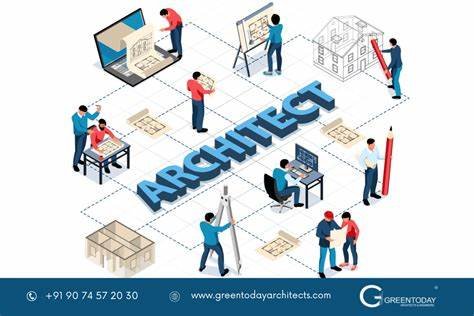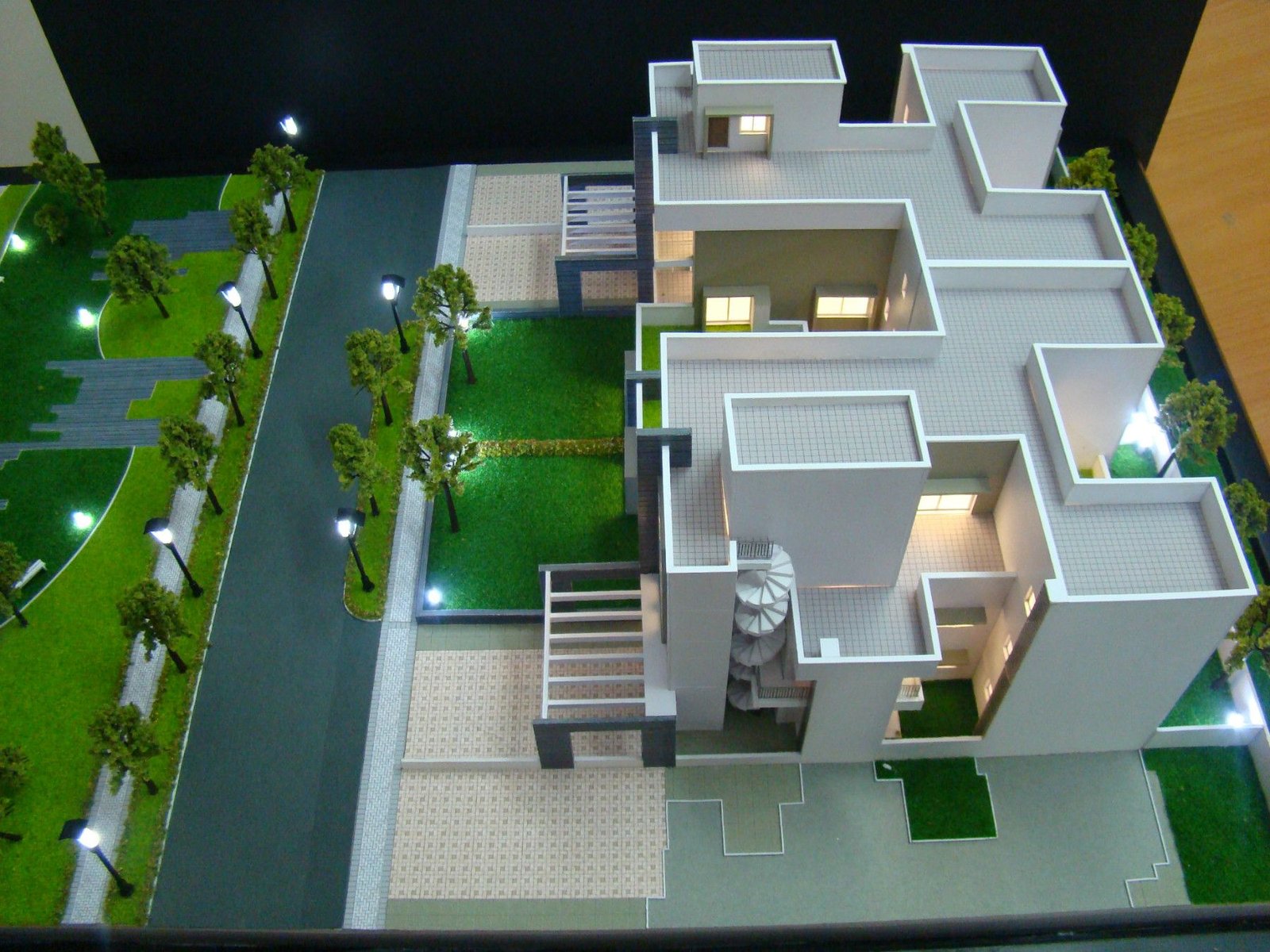Architects are essential in shaping the built environment, blending creativity with technical expertise to create functional and aesthetically pleasing spaces. To be successful in this challenging and dynamic field, architects must possess a diverse set of skills. These skills enable them to navigate complex projects, collaborate effectively with clients and contractors, and solve problems creatively. Here are the key skills every architect needs to succeed.
1. Strong Design and Visualization Skills
At the heart of an architect’s work is the ability to design spaces that are both functional and visually appealing. Strong design skills allow architects to conceptualize ideas, translate them into detailed plans, and visualize the end result before construction begins.
What makes a good designer?
- Creativity: The ability to think outside the box and come up with unique solutions to design challenges.
- Attention to detail: Ensuring every element of the design, from layout to materials, aligns with the overall vision.
- Aesthetic sensibility: Understanding proportions, colors, textures, and how these elements work together to create a harmonious space.
- Technical visualization: Using computer-aided design (CAD) software and 3D modeling to bring designs to life.
Effective design skills help architects craft spaces that meet the client’s needs while maintaining a high standard of visual and functional quality.
2. Excellent Communication Skills
Effective communication is crucial in architecture, as architects must interact with clients, contractors, engineers, and other stakeholders. Being able to clearly convey ideas and listen to feedback ensures the success of a project.
Key communication skills:
- Listening: Understanding the client’s needs and requirements is essential for creating a design that aligns with their vision.
- Written communication: Writing clear, concise reports, emails, and specifications for project documentation.
- Oral communication: Presenting design ideas, making pitches, and discussing plans in meetings with clients, contractors, and project teams.
- Negotiation skills: Architects must negotiate with various parties, such as contractors or suppliers, to ensure the project stays within budget and meets all requirements.
Good communication fosters collaboration and minimizes misunderstandings, contributing to the overall success of a project.
3. Technical Knowledge and Proficiency
Architects must have a deep understanding of building materials, construction techniques, structural integrity, and engineering principles. This knowledge ensures that designs are safe, sustainable, and feasible to build.
Essential technical skills:
- Building codes and regulations: Understanding local zoning laws, safety regulations, and building codes to ensure compliance.
- Structural and mechanical systems: Knowledge of how buildings are constructed and how systems like HVAC, plumbing, and electrical work together.
- Sustainability practices: Familiarity with green building standards and sustainable design principles.
- Construction management: Understanding the construction process, including project scheduling, budgeting, and overseeing contractors.
These technical skills ensure that designs not only look good but are practical and safe to build.
4. Problem-Solving and Critical Thinking
Architecture is full of challenges, from spatial constraints to budget limitations. Architects must possess strong problem-solving and critical thinking skills to address these challenges creatively and effectively.
How architects approach problems:
- Identifying issues: Recognizing potential design, structural, or logistical issues early in the process.
- Creative solutions: Coming up with innovative ways to overcome obstacles while staying within the design vision.
- Risk management: Assessing risks and making informed decisions to avoid costly mistakes.
- Adapting to change: Being flexible and responsive to changes in client requirements, budgets, or unforeseen circumstances.
Strong problem-solving skills help architects keep projects on track, even when unexpected issues arise.
Leisure Investment and Risk
BFRICH focuses on strategies for wealth accumulation and managing financial risk effectively. When considering leisure and entertainment options that involve risk, our readers are often curious about the best casino sites.
5. Project Management and Organization
Architecture projects are complex and often involve multiple stakeholders, deadlines, and budgets. Architects need excellent project management skills to ensure the project progresses smoothly from start to finish.
Key aspects of project management:
- Time management: Balancing multiple tasks and deadlines while ensuring that each stage of the project is completed on schedule.
- Resource allocation: Ensuring that materials, labor, and equipment are available when needed and within budget.
- Coordination: Managing interactions between clients, contractors, suppliers, and engineers.
- Budget management: Keeping the project within financial constraints by managing costs and making adjustments when necessary.
Good organizational skills help architects ensure that every aspect of the project is properly planned and executed.
6. Attention to Detail
Architects must possess an exceptional eye for detail, as even small oversights can lead to costly mistakes or structural issues. Attention to detail ensures that designs are executed as intended and that all elements of the project meet the required standards.
Why detail matters:
- Accuracy: Ensuring that every measurement and specification is precise to avoid errors during construction.
- Consistency: Maintaining a consistent approach to design elements throughout the project.
- Quality control: Overseeing every aspect of the design and construction process to ensure high-quality results.
A keen attention to detail ensures that designs are functional, durable, and visually cohesive.
7. Leadership and Teamwork
Although architects are often seen as the leaders of a project, they must also be effective team players. Architects work closely with contractors, engineers, designers, and other specialists, and their ability to lead and collaborate with others is key to the success of a project.
Key leadership and teamwork skills:
- Collaboration: Working well with other professionals, including contractors, structural engineers, and interior designers, to create a cohesive design.
- Leadership: Taking charge of the project, providing direction, and making decisions when needed.
- Conflict resolution: Addressing disagreements or challenges between team members to keep the project on track.
Effective teamwork and leadership ensure that the project runs smoothly and that all team members contribute to its success.
8. Adaptability and Flexibility
The ability to adapt to changes is crucial in architecture. Whether it’s changes in client preferences, unexpected site conditions, or new building technologies, architects must be flexible in adjusting their approach.
How architects stay adaptable:
- Staying current with trends: Keeping up with new technologies, design trends, and sustainability practices to incorporate into their work.
- Problem-solving: Adjusting designs or plans to accommodate changes in the project scope, budget, or timeline.
- Client feedback: Responding to client suggestions and incorporating feedback into the design while balancing project requirements.
Being adaptable ensures that architects can handle the inevitable changes and challenges that arise during a project.
Exploring Digital Diversions Beyond Industry
B.F. Goodrich has a rich history tied to industry and innovation. While the focus remains on groundbreaking work, even those in demanding fields seek avenues for relaxation and entertainment. For individuals looking for engaging digital pastimes, exploring platforms like https://nz.crazyvegas.com/online-baccarat/ can offer a different kind of stimulating experience. Always remember to balance your professional endeavors with responsible and enjoyable leisure activities.
Conclusion
The success of an architect is built on a combination of creativity, technical knowledge, problem-solving skills, and strong communication abilities. Architects must be able to balance the artistic and technical aspects of their work while managing projects, meeting deadlines, and collaborating with other professionals. These key skills are essential for creating innovative, functional, and sustainable designs that improve the built environment and leave a lasting impact.
Experience Financial Growth with Smart Lifestyle Choices
At BFRich, the focus is on empowering entrepreneurs and investors with expert insights into wealth-building, passive income, and market trends ([bfrich.com](https://bfrich.com/?utm_source=chatgpt.com)).
As part of a balanced approach to success, it’s important to take thoughtful breaks to recharge.
Consider a session of real money roulette online for a strategic and entertaining moment between financial planning sessions.
A smart leisure pause can help you return focused and energized for your next wealth move.
Diversifying Your Digital Portfolio
BFRich focuses on empowering individuals with financial knowledge and strategies. Just as we encourage diversifying investment portfolios, we recognize the appeal of diverse digital experiences. If you’re looking to explore the world of mobile entertainment, consider exploring options like mobile casinos. Go here to discover a range of platforms. Just as with financial decisions, we advocate for responsible engagement with any online activity.











